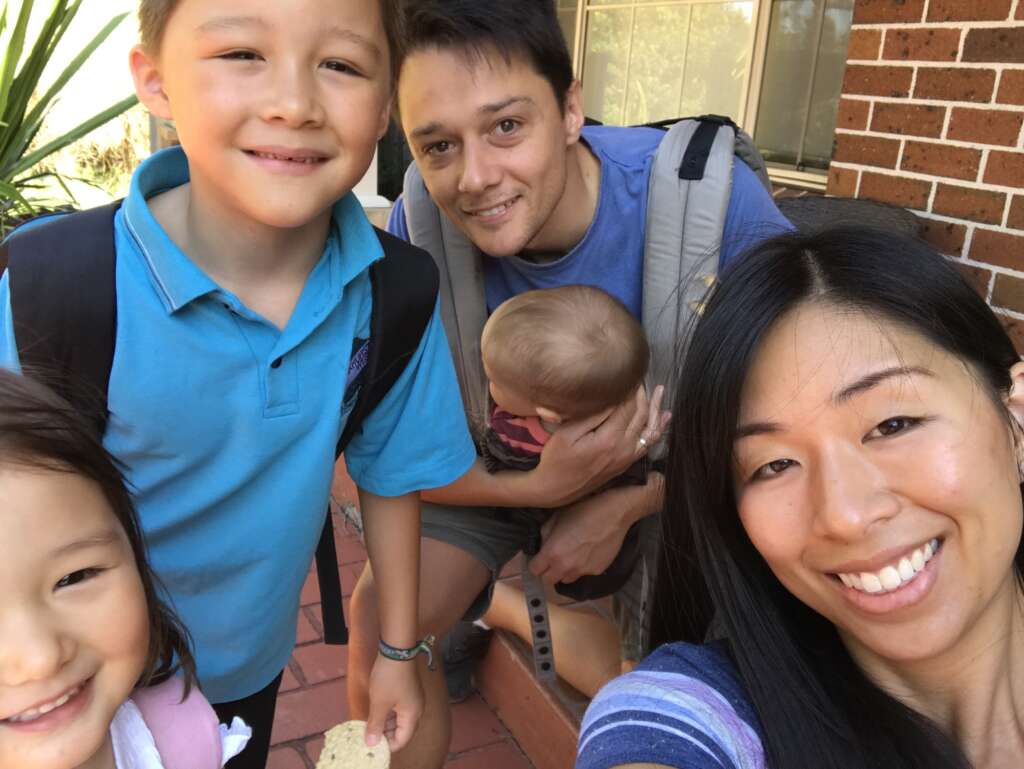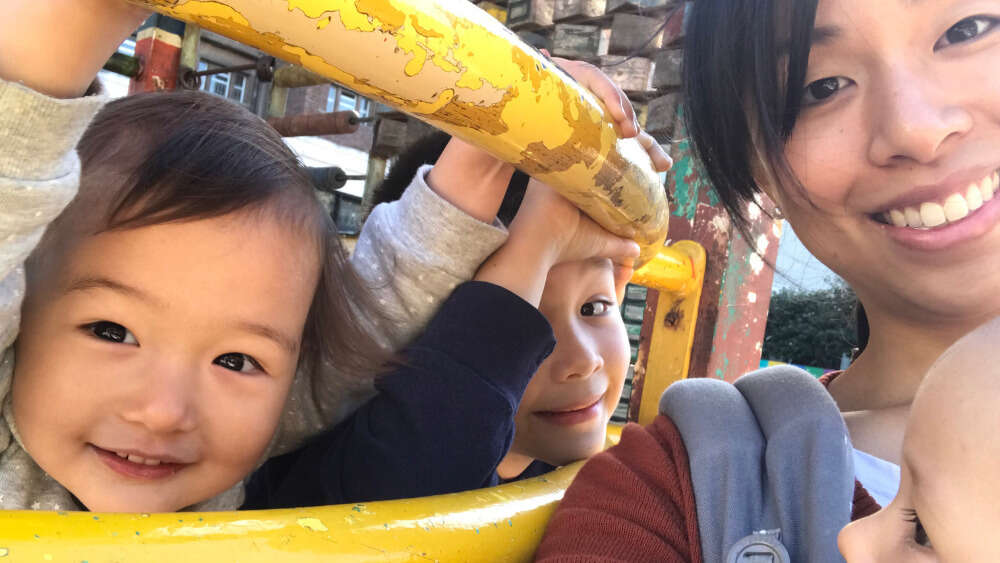This is an edited version of a reflection Joy Oliveira Woolmer gave in collaboration with two fellow missionaries serving in other ministries and locations at CMS Summer School 2023. Joy and Pedro have been serving for three years in Montevideo, the capital city of Uruguay in South America, serving alongside the local staff and students of the International Fellowship of Evangelical Students (IFES) movement in Uruguay.
Our ministry to the homeless was an unexpected ministry we stumbled upon within the first couple of months of arriving. I shouldn’t have been surprised by this because, in the months leading up to our moving to Uruguay, God had convicted us of the importance of caring for the poor. We had been going through the Proverbs together and were struck by how the care of the poor and vulnerable in our midst was tied to righteousness and fearing God. I had forgotten about this until Pedro reminded me that during our time in the Proverbs, we had prayed that God might give us the opportunity to care for the poor in Uruguay. We were excited to see how he would answer. And he did.
Living right in the middle of the city, two streets away from the equivalent of Town Hall Square in Sydney, we saw the poorest of the poor every day: on the corner of our street, at the entrance to our local supermarket, and on the walk to and from school. Their needs were ever before us, and they would often ask us for food or money. I had never been in a situation like this before. I knew I needed to respond, and I did. But I also knew I had no idea what I was doing. It was often unclear what the “right” response was.
How do we avoid unhealthy expectations and foster relationships of mutual respect when the power imbalance is so obvious?
Of course, we wanted to say yes to kindness and generosity, but what about wisdom and boundaries? And what about their unfelt gospel needs? How do we avoid unhealthy expectations and foster relationships of mutual respect when the power imbalance is so obvious? The local Christians we knew didn’t know either. And so we felt pretty alone and ill-equipped in our response.
But over time, and through lots of trial and error, God has taught me valuable lessons about loving the poor, and being loved by them. His answer to my prayer three years ago has come with challenges, disappointments, and sadness. But it has also brought great joy!

Joy and Pedro Oliveira-Woolmer with their three children.
Let me tell you about Jorge and Andrea, a couple in their 40s who found themselves living on the streets shortly after the pandemic forced Uruguay into lockdown. They camped outside the entrance of the supermarket that had recently become my usual place to shop, and Jorge would open the door for customers going in and out, asking for a loaf of bread or a bottle of milk. And that’s how we met, just shy of three years ago.
Over the course of knowing Jorge and Andrea, one of the hardest things for me has been to learn and relearn the limits of what I can and can’t do to help them. At times, I’ve overestimated this; at other times, I’ve underestimated this. It’s been a constant challenge to accept that I can’t help them out of their poverty. I can’t change their physical circumstances. And there were many times when this hard truth felt crushing. And yet what seemed like such a pathetic response to their many basic needs led to the beginning of an unlikely friendship between us.
What seemed like such a pathetic response to their many basic needs led to the beginning of an unlikely friendship between us.
When we first met, I had close to no local language. I had no experience of how to help and little knowledge of what they needed. I was very confronted by their vulnerability and didn’t know how to process their situation. I can still remember the awful feeling of walking away knowing that I had made very little, if any, difference at all to their suffering. And this drove me to pray for them, regularly and fervently.
I remember when Jorge had a very infected open sore on his finger. He was in a lot of pain and asked if I could get him some antibiotics. I went to the chemist, and, using a combination of gesturing and my best guesses at the Spanish words for infection, antiseptic, and cream, tried to explain what I needed. Thankfully, the chemist sent me on my way with what looked like a topical antiseptic gel and some Band-Aids. I desperately wanted to pray for him, but didn’t have even a quarter of the Spanish I needed to do that. So I left and, with tears in my eyes, begged God to look after him. It was difficult to accept that there was nothing else I could do. I felt so useless! But it was also a great comfort that I could talk to God about Jorge and ask for healing on his behalf. Imagine my joy and relief when the next time I saw him, the nasty infection had cleared and his finger was looking a whole lot better! This is just one of many stories of how God answered very specific prayers to provide for the homeless people we know.
This is just one of many stories of how God answered very specific prayers to provide for the homeless people we know.
As time passed and my language skills slowly improved, I realised there were other things I could do to show more than just tokenistic concern but genuine care. Jorge and Andrea were friendly and welcomed our basic conversation. I could ask questions about where they’d come from and about their families. I listened to their stories, even if I could only understand parts of what they were saying. Even knowing them by name made a difference. I was a regular fixture in their week, and trust was beginning to grow. I realised that friendship and respect were just as important to them as food and clothing. And so I stopped avoiding their part of the street when I couldn’t bring more food. Just a friendly smile and hello was a way to care for them too.
I realised that friendship and respect were just as important to them as food and clothing.
In hindsight, it was only when I accepted the limits of what I could do to help them out of their poverty that I began to see that their needs were more varied than I had originally thought. There was a lot more I could do and share with them! Yes, they were homeless, jobless and always hungry. But they were also lonely, lost, and despised. They loved the kids, and giving them a Covid-safe fist pump or playing peekaboo with my daughter Zoe brought them joy. They were curious about our lives and listened intently when I talked about my family in Australia. Andrea was actually the first person in Uruguay to ask about the reason we left our homes and families behind. To be given a chance to express that Jesus is the reason we are in Uruguay and that our greatest desire is for Uruguayans just like them to know Jesus was such a gift and encouragement to me at the time!
They always welcomed prayer, even though my language was, and still is, particularly bad when praying. We talked to them about Jesus in bite-sized chunks and shared how knowing God personally gave us hope, purpose, and security. And I think they felt a little vindicated and a little less despised when passers-by could see that we enjoyed their company and weren’t ashamed of being seen with them.
I think the greatest joy we ever brought Jorge and Andrea was when they showed us generosity.
They were eager to give and share with us too. In fact, I think the greatest joy we ever brought Jorge and Andrea was when they showed us generosity. Uruguay celebrates “Children’s Day” in August, and it’s cultural for parents, uncles and aunties, and grandparents to prepare presents for the kids in the family. At the time, we didn’t know the significance of this date in the Uruguayan calendar. But one August day, as we were chatting, Jorge and Andrea made me promise that we would bring the kids to see them that coming Saturday because it was Children’s Day. We had already made other plans for the day but agreed to say hi on our way to the bus stop.
I’m so glad we did. Jorge and Andrea saw us from a distance and had obviously been waiting for us. With huge smiles, they gave the kids each a bubble wand that they had bought and had gift-wrapped! My first instinct was to worry about how much they had spent on these presents! But they didn’t care about that at all. They had something valuable to contribute, and that was more important than a meal that day.
They had something valuable to contribute, and that was more important than a meal that day.
It’s been almost a year since I’ve seen Jorge and Andrea. When we moved to a different part of town and had Emi, our third child, it became too difficult to go to see them. It was hard to let go, especially because we never got to the point where I was able to clearly and simply explain the whole gospel to them and encourage a personal response. Sometimes I still wonder if I could have done more or better. I’m sure I could have. I also wonder what difference our two years together made, whether there would be any difference in the long run, in eternity.
I pray that one day, I’ll see them in heaven and hear the rest of their story.
But in those two years, God showed me time and time again that he is a kind and caring God. He is righteous and just and calls us to care for the poor and vulnerable because that reflects his own character. He has endless resources and is not limited as I am. He knew Jorge and Andrea before I met them, and he put me in their lives for that season, to remind them of their value in God’s sight, to provide for some physical needs, and for our mutual friendship. He also put them in my life to teach me to trust him and to bring me joy and encouragement. I don’t know how far along the Jesus road I was able to walk with them, but I know that God is able to bring others on their path and get them safely home. And so I pray that one day, I’ll see them in heaven and hear the rest of their story.
Email This Story
Why not send this to a friend?


